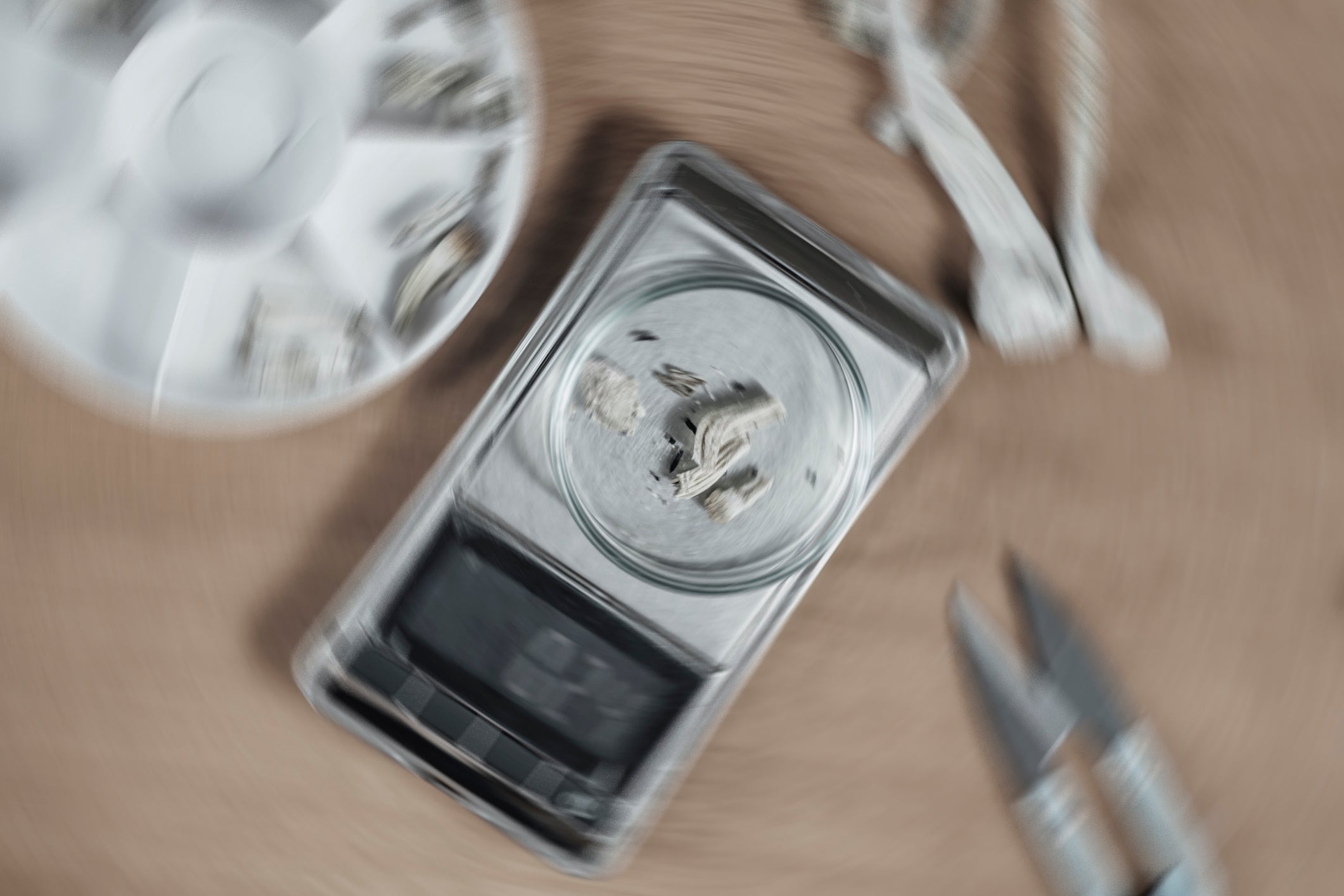The world of psychedelic drug treatment is currently experiencing a renaissance on the street, in the clinic, and via popular culture. Following half a century of dormancy, the latest Global Drug Survey reports an uptake in people taking psychedelics for medicinal, rather than recreational, purposes. The demand for psychedelic assisted therapy is also rising.
The zeitgeist has also reached Hollywood, in the Nicole Kidman Amazon Prime series Nine Perfect Strangers, the Netflix documentary Have a Good Trip and Gwyneth Paltrow's goop Lab. At the forefront of this trend is microdosing, the ingestion of tiny amounts of psychedelics (around one-twentieth to one-tenth of a recreational dose) on a regular basis.
History of psychedelics
The use of psychedelics is not a modern phenomenon. Plants with hallucinogenic properties have been used in non-Western cultures for thousands of years, particularly in religious and spiritual ceremonies.
But psychedelics didn't hit mainstream Western culture until the discovery of LSD in the 1940s by Dr Albert Hofmann. The Swiss chemist synthesised the drug by altering a molecule found in the ergot fungus, which grows on the crop rye.
Hofmann accidentally discovered the psychoactive properties of LSD and his findings were disseminated to the psychotherapist community during the 1950s. Under the influence of LSD, patients were able to recall repressed memories and revisit past traumas within an extended therapy session.
News of the drug leaked from the scientific community into the wider public, popularised by dystopian writer Aldous Huxley. Moral panic and political outrage led to the drug being made illegal in the USA in 1966. Other countries quickly followed suit.
As a consequence, most medical research to ground to a halt until the 2000s when psychedelic research centres began to re-emerge, such as at the Charleston Medical University of South Carolina and University College Los Angeles. In the UK, Imperial College London is now one of the leading institutions in the field with The Centre for Psychedelic Research. Non-profit organisation the Heroic Hearts Project currently uses psychedelic therapy to treat military veterans suffering with post traumatic stress.

Medicinal effects
There is mounting evidence that psychedelics can be an effective treatment for physical as well as mental conditions. Research suggests that psychedelics can reset neural pathways, reducing the brain's oversensitivity to pain signals.
For instance, in the early 2000s, studies from Harvard Medical School revealed the use of psychedelics such as LSD and psilocybin may alleviate cluster headaches. More recently a study from Imperial College London has also shown psilocybin (the active ingredient in magic mushrooms) may help to reset the brains of depressed patients.
Meanwhile, John Hopkins Medicine researchers found that two doses of psilocybin given with supportive psychotherapy produced dramatic reductions in depression. It is believed that psilocybin works by suppressing parts of the brain that filter out information from a person's senses. As a result more sensory information reaches a person's consciousness causing hallucinations and changes in perception.
The growth of microdosing
Viewed by some as "pop science", microdosing has also been seen as a productivity hack. Some users believe that ingesting intermittent doses of tiny amounts of psychedelics help enhance creativity and focus, leading to hours of uninterrupted work.
Rather than a means of escapism or unlocking the psyche, the purpose of microdosing is to avoid hallucinations and manage day-to-day life more productively. One in four people taking LSD or magic mushrooms are now microdosing according to the Global Drugs Survey 2020. And mycologist Jack Gibney, managing director of Mind, Body and Performance says:
"Microdosing medicinal mushrooms can elevate mood, feelings of overall well-being, reduce anxiety and can improve focus. In some cases, people have reported improvements in their quality of sleep. Unlike some medication, it is also anti addictive."
Despite remaining illegal in many countries, a variety of psychedelics have made it into the microdosing market, with LSD and magic mushrooms being the most commonly used. Other varieties include cannabis, DMT, ayahuasca, iboga and ketamine.
However, research into microdosing is largely inconclusive, with the placebo effect appearing to account for participant improvement. James Bunn, head of operations at Drug Science says people are microdosing to treat a huge range of psychosomatic symptoms, but "research shows it is not doing as much as people purport it to do."
Scientific research seems to support that assertion. The largest placebo-controlled trial conducted by Imperial College London in 2018, found no significant difference between the microdose and placebo groups.
Admittedly research in this field is scant due to the expensive and restrictive nature of studies with illegal drugs. Organisations such as Drug Science and MQ are currently campaigning for an easing of red tape to enable more clinical trials.
User experience
Writer Benjamin Ramm, who lives in France, has been microdosing with magic mushrooms for the past six months. The 28 year old claims it has boosted his mental clarity, improved the quality of his sleep and even helped with his running strength. He strongly disputes that microdosing has a placebo effect."I find it really uplifting and it is phenomenally good at helping you get back to sleep." he adds.
Ramm started microdosing in a bid to reach the "mental equilibrium" he had experienced during a psychedelic retreat in the Netherlands in 2019. "It was a profound, transformative experience. For more than a year I felt the effects. A year into the pandemic and we were all jaded and worn out. I wanted to reconnect with the vast spiritual ocean I gained access to, two years previously."

